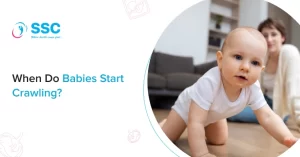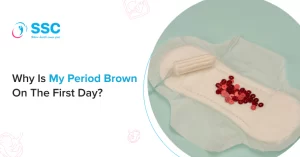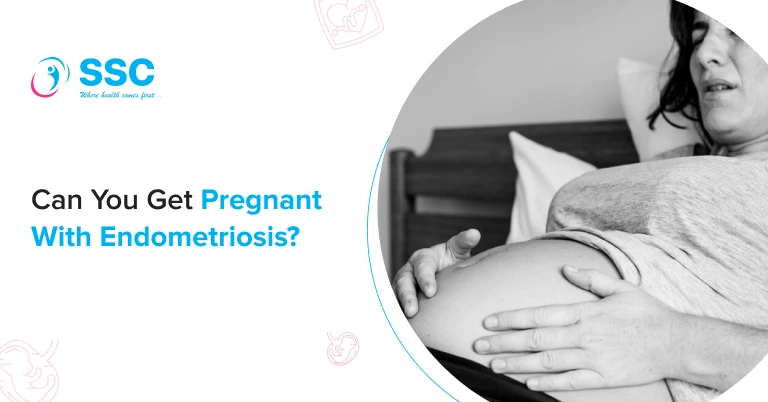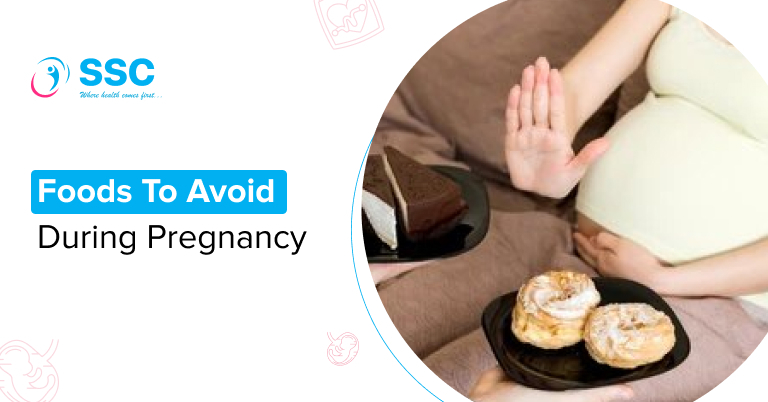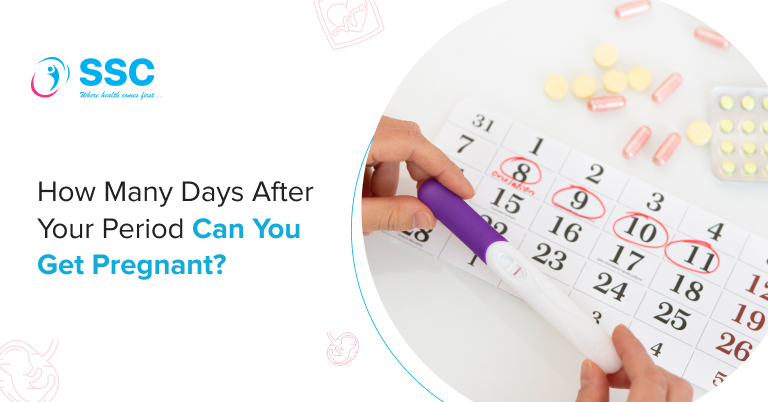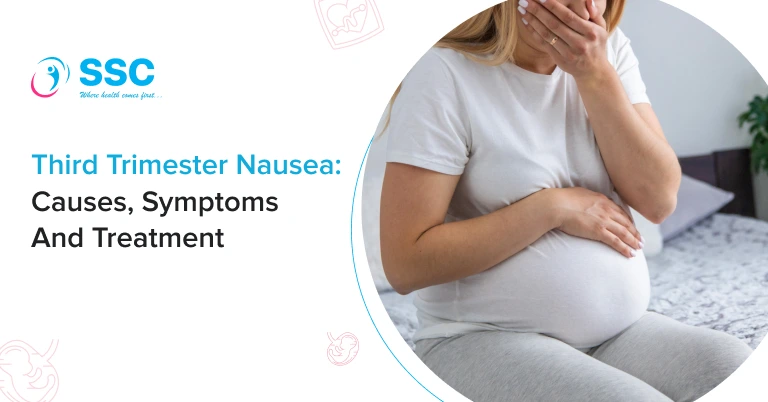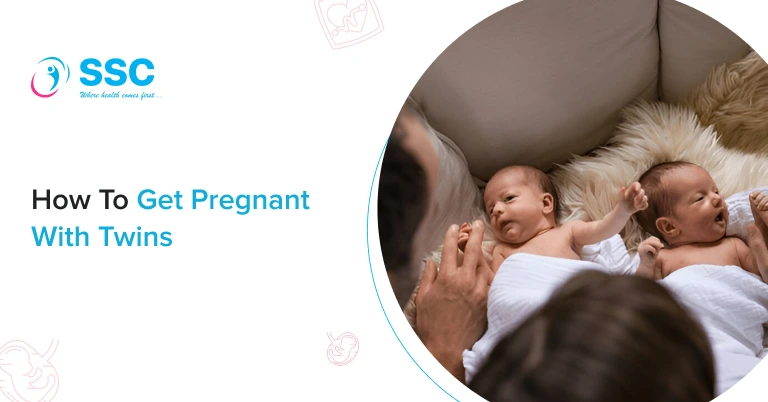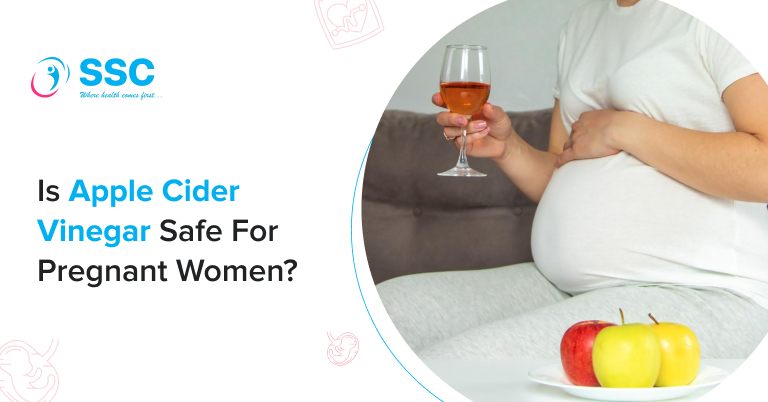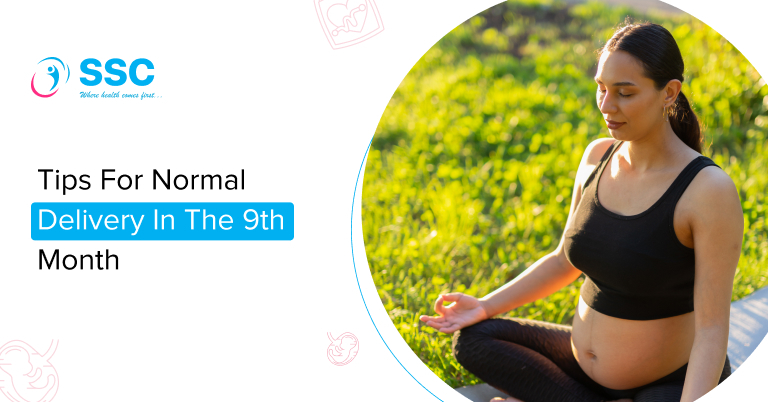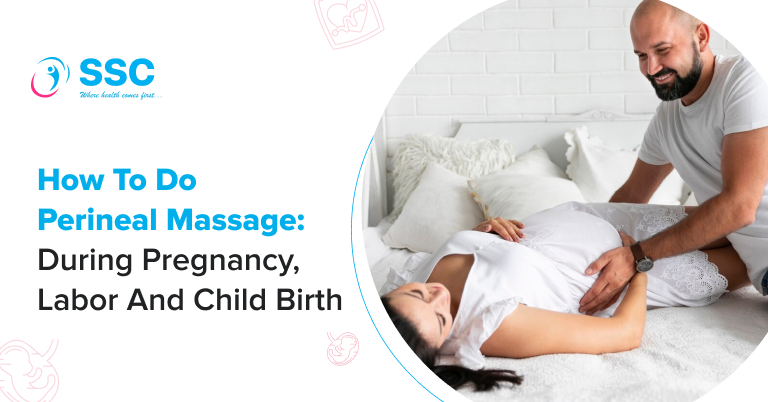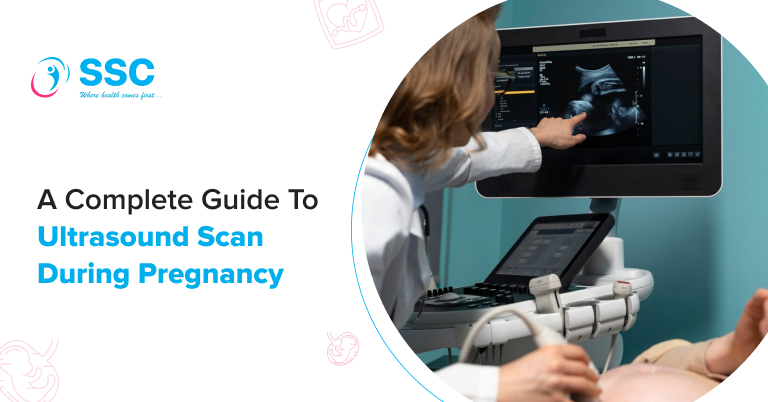Can You Still Have Your Period if You’re Pregnant?
No, you cannot have a period while pregnant because your body stops menstruation to support the pregnancy. However, some women may have light bleeding or spotting, which can be mistaken for a period. This is usually due to implantation or other causes.
You cannot have a period while pregnant because menstruation requires ovulation, which temporarily stops during pregnancy.
Ovulation happens when your ovary releases an egg. If the egg isn’t fertilized, it breaks down along the uterus lining and leaves your body as a period. Since ovulation stops during pregnancy, any bleeding you notice isn’t a period.
In this article, we discuss the possible causes of bleeding during pregnancy.
Can You Have Your Period And Still Be Pregnant?
No, you can’t have a period while you’re pregnant.
After ovulation, your body sheds the uterine lining and an unfertilized egg each month, which is your period. It starts light, gets heavier, then slows down before stopping. But during pregnancy, your period stops because your body no longer ovulates or sheds the lining.
If you notice bleeding during pregnancy, it’s not a period—it could be due to implantation, hormone changes, or other factors.
Light spotting in early pregnancy is common and not always a reason to worry, but if you’ve had a positive test and are experiencing heavy bleeding, consult with your doctor immediately.
Is it Normal to Experience Spotting During Pregnancy?
During pregnancy, there are several reasons why you can experience bleeding outside of your period. Knowing the difference between bleeding and spotting is crucial.
Spotting: Minor bleeding that doesn’t need napkins or tampons appears as a few droplets on your underwear.
Bleeding: A heavier flow that requires a tampon or pad to prevent it from soaking your clothes.
Spotting occurs in roughly 15–25% of instances during the first few months of pregnancy. This can happen because pregnancy increases blood flow to the cervix, making it weaker and more prone to bleeding. Some spotting may occur 10–14 days after conception, when the fertilized egg attaches to the uterus, a process known as implantation.
Other Causes of Bleeding During Pregnancy
First Trimester
Bleeding is more prevalent during the first trimester, and minor spotting may occur while the placenta attaches to the uterus. The possible causes of bleeding are
- Implantation Bleeding: You might notice light spotting when a fertilized egg attaches to your uterus, often around the time you’d expect your period.
- Ectopic Pregnancy: If a fertilized egg grows outside the uterus, like in a fallopian tube or ovary, it might cause bleeding.
- Miscarriage: Losing a pregnancy before the baby can survive outside the womb results in heavy bleeding and severe pain, which requires immediate medical attention.
- Hormonal Changes: During early pregnancy, hormone changes can make your cervix more sensitive. It means you might notice light bleeding after sex.
- Infections: Infections like Urinary Tract Infections (UTI) or Chlamydia are yet another reason for bleeding during the first trimester.
Other possible causes include subchorionic hemorrhage, where blood collects between the uterus and placenta, or gestational trophoblastic disease (GTD), a rare condition that mimics pregnancy due to abnormal cell growth. Both require medical attention.
Second and Third Trimester
If you experience bleeding in your second or third trimester, it’s essential to contact your doctor right away. Whether it’s light or heavy, with or without other symptoms, getting checked can help ensure you and your baby stay safe.
Cervical Examination:
During pregnancy, a doctor may perform a cervical exam to check for abnormalities or changes. Since the cervix is more sensitive now, the examination may cause minor bleeding, which is usually harmless.
Placental Abruption:
This usually happens in the final months of pregnancy. This serious complication occurs when the placenta partially or completely detaches from the uterine wall before delivery. It can cause severe bleeding, abdominal pain, and distress for the baby, requiring urgent medical attention.
Sexual Intercourse:
Increased blood flow and sensitivity in the vaginal and cervical tissues during pregnancy can lead to light spotting after intercourse. While this is usually not a concern, it’s best to consult a doctor if the bleeding is heavy or persistent.
Placenta Previa:
This condition occurs when the placenta implants too close to or directly over the cervix. It can lead to painless bleeding in the later stages of pregnancy and may require monitoring or special precautions, depending on its severity.
Preterm Labor or Labor:
Preterm labor occurs before 37 weeks of pregnancy. As the body prepares for childbirth, the cervix dilates, and the uterus contracts to move the baby into position. This process can sometimes cause bleeding.
Uterine Rupture:
It is a rare but life-threatening condition where the uterus tears during labor, often in women with a history of cesarean delivery or previous uterine surgery. It requires immediate medical intervention, as it can pose serious risks to both mother and baby.
Other causes include subchorionic hematoma and miscarriage, which can happen up to 20 weeks of pregnancy and require immediate medical attention.
When to See the Doctor:
Seek medical attention immediately if you experience bleeding along with:
- Intense cramps or pain in your belly
- Feeling lightheaded or fainting
- Heavy bleeding or passing blood clots
- Sharp pain in your lower stomach or pelvis
- Bright red bleeding that soaks through a pad
In early pregnancy, bleeding with pelvic pain could be a sign of an ectopic pregnancy, especially if you haven’t had your first ultrasound yet. Always look out for the symptoms that seem unusual.
If you are pregnant, you cannot get your period. Some people might experience light bleeding, mild cramps, tiredness, mood swings, and lower back pain at the start of their pregnancy, but if these symptoms become strong or persist for a long time, it is essential to consult your doctor.
Bottom Line:
You cannot have a period when pregnant, although some women may have bleeding for other reasons. Understanding the distinction between periods and pregnancy-related spotting is vital.
For further queries, contact us, the best gynecologist in Bangalore, for personalized treatment and expert care.
Frequently Asked Questions
Can you be two weeks pregnant and still have your period?
No, periods stop when pregnancy begins, but some women experience light spotting. This can be due to implantation bleeding or hormonal changes. A pregnancy test can help confirm.
How is it possible to have a full period but still be pregnant?
A period does not happen in pregnancy, but heavy bleeding can occur due to hormonal shifts, implantation, or complications. It’s important to check with a doctor to rule out any risks.
Can you be pregnant and still get your period every month without knowing?
Some women experience regular spotting or light bleeding that seems like a period. This can be caused by hormonal changes or conditions like a subchorionic hematoma. A test is the best way to confirm.
What are the symptoms of pregnancy if you're still getting your period?
Even with bleeding, symptoms like nausea, fatigue, sore breasts, and mood swings can occur. Some women also experience bloating and food cravings. A missed period is not always the only pregnancy sign.
Is it possible to have a period in early pregnancy?
No, but light bleeding can happen due to implantation or cervical sensitivity. Some women also experience breakthrough bleeding when their body adjusts to pregnancy hormones.
Can you get your period in the first week of pregnancy and still be pregnant?
A period does not occur in pregnancy, but light bleeding may happen when the fertilized egg attaches to the uterus. It’s usually lighter and shorter than a normal period.
When do periods stop during pregnancy?
Periods stop right after conception because pregnancy hormones prevent ovulation. Some women may still experience occasional spotting, but it’s not the same as a period.
I just had my period, but I feel pregnant—what could be the reason?
Some women mistake early pregnancy bleeding for a period. If you feel pregnant, symptoms like nausea and fatigue may indicate pregnancy, so taking a test is a good idea.




